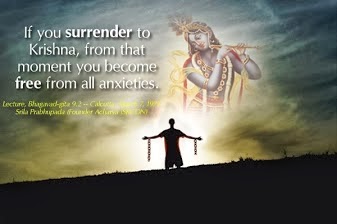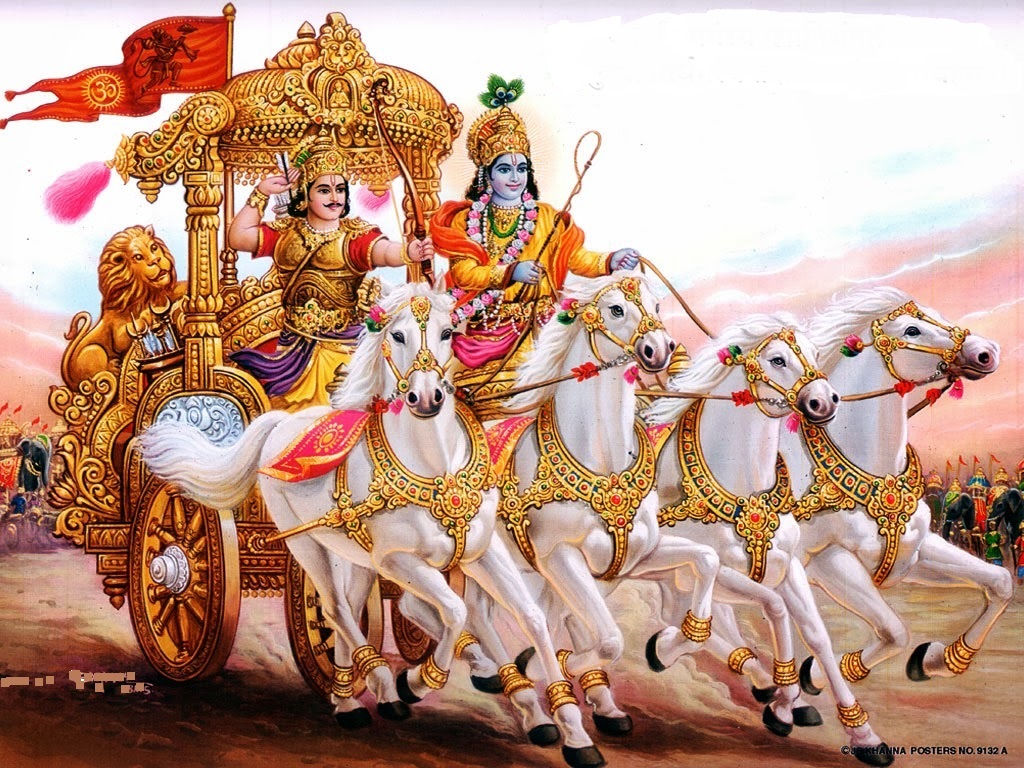The Spiritual Import of the Mahabharata and the Bhagavadgita : Ch-3. Part-6.
3: The World is the Face of God : 6.
So it is naturally a surprise to the unsuspecting seeker to be faced with such realities, and to be terrorised once again in the same manner as before by forces unseen and unexpected. When we face in battle any power, it pushes forth all its energies to the maximum extent. Our energies come to the forefront only when we are opposed; otherwise no one can know what one’s strength is. When everything is failing and our last resort is to save ourselves, then we unleash all our strength. So it is that the Pandavas had to face a set of forces which encountered them with all their might and mane. At that time there is a peculiar sorrow of the soul, which catches it by the neck, as it were, and the soul retaliates. “Not this, and it is not for me,” says the soul.
Here we find Arjuna at the very beginning of the Bhagavadgita. All the supports and all the weapons that we have in our hands do not seem to be sufficient to meet the powers that are arrayed before us in battle. The soul recoils from the fact of its having to come in opposition to the powers of the world which are vastly arrayed before it. Then doubts arise. I mentioned to you something about the nature of the havoc that doubt can play in our minds, and doubts will not leave us till the last moment of our lives. There are varieties of doubts; when one doubt goes, another one comes that was not there previously. Doubts shake us from the root, and we become diffident at that moment.
Perhaps there is a mistake—this is what we begin to feel. Various arguments were thrust forward by Arjuna to discount the justice of the war. “What is the point in facing Bhishma, Drona and others who are our venerable ancestors?” The regard for elders, the regard for people, love and affection for kith and kin is so strong that a violation of this law is usually regarded in society as an unpardonable mistake. He becomes a renegade in society. “Is this practical, and is this ethically permissible?” is the query of Arjuna. “No, not permissible,” he himself gives the answer. “To cut the throat of those people who have taken care of me from childhood, from whose hands I have eaten food, to strike a blow at their own heads would be a heinous sin,” says the ethics of the world. This would not be permitted. The other argument is: “Where is the guarantee that this battle is going to end with success on our side? May be somebody will win—may be the other side.
Why should it be only this side? And all our efforts will be in vain. We will be doomed and destroyed, and will be seeing only bloodshed. What will be the fate of those people who we have harnessed for battle and who have dedicated their lives for our sake, and who have left their mortal coil in our name?” This is another argument—there is no certainty of the consequences of war apart from the fact that there is a mistake in encountering people who are our own. Thirdly, there is a doubt: “The world is not as bad as it appears, and there is something worthwhile in it.” The rejection of the world for the sake of God is involved in a subtle error of not recognising the values that are present in life.
To be continued ...





Comments